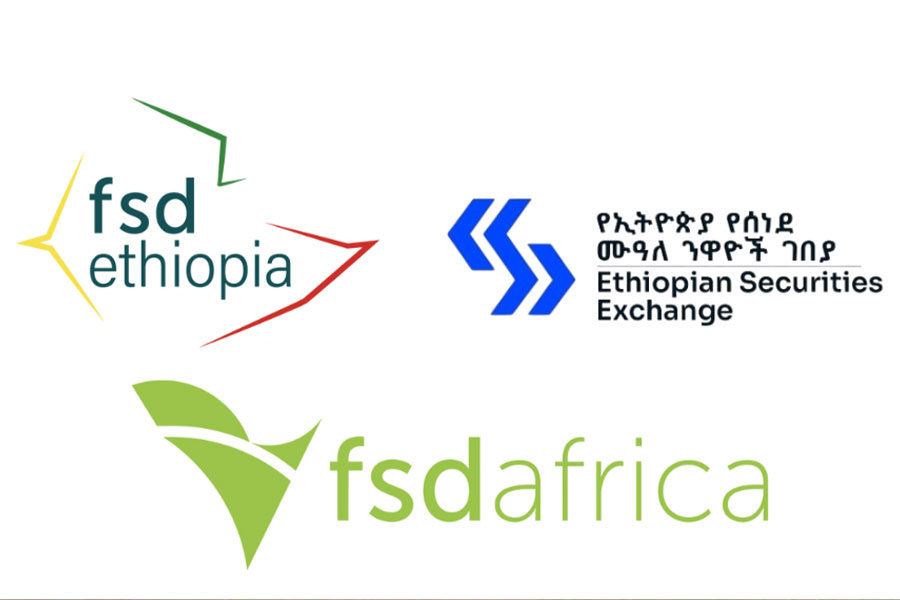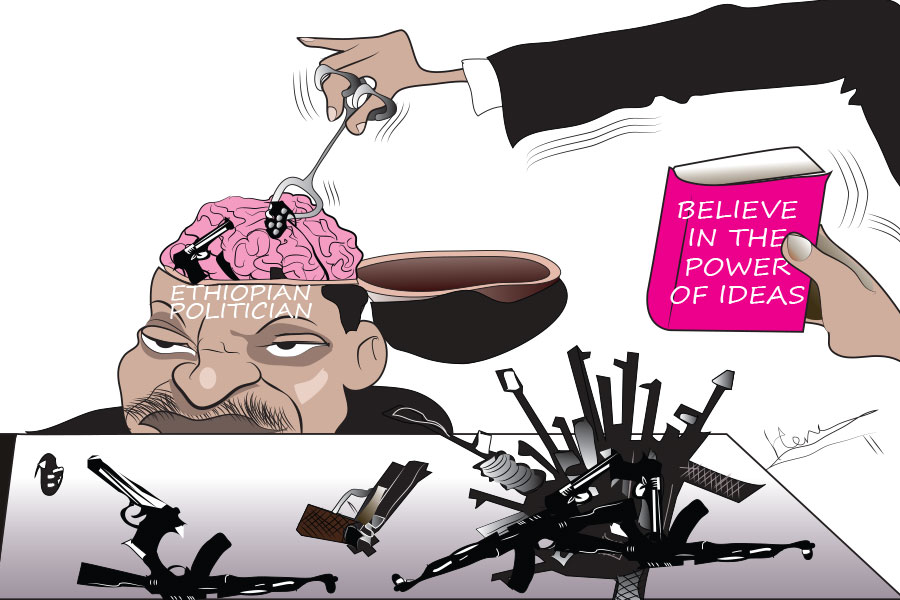
Editorial | Jan 16,2021
Jul 25 , 2020
By Dejen Yemane
Revolutions and counter-revolutions have become part of Ethiopia’s political vocabulary since the 1960s. They have reigned supreme as the fight for gaining more power and influence continues. Many lives have been lost in this process and will continue to be.
The pros and cons of revolutions are debated hotly, but one thing is clear, there is a political deadlock, and it does not seem there is any way out. The battle for the various types of nationalisms, built on identity and history are untenable and unlikely to be reconciled anytime soon. In the meantime, citizens are being put through trauma.
It is thus time to reorient our attention to an area that may not be original but nonetheless is more important than ever: resource nationalism. It is the construction of a political economy geared mainly to the utilisation of resources, through the state, for development purposes. If there is any purpose around which we can coalesce today, it is nationalism against poverty and for economic development.
Revolutions in Ethiopia were primarily for political causes and secondarily for economic reasons. Poverty has been depicted either as a consequence of political disenfranchisement or even a challenge not as worrying as perceived socio-cultural inequalities. In the end, we find ourselves at the lower rung of either the political or economic fronts, where instability has reigned.
It is only natural we set our imagination to work and adjust the aim of the revolutions we seem to be a constant part of toward addressing poverty. It is an ill in and of itself – an enemy we can be organised against successfully through resource nationalism.
If we advocate for a nationalism based on our natural resources, we can transform our economy. By clearly presenting programmes and development paths toward proper utilisation of natural resources in Ethiopia, we can get the various groups to coalesce in the centre. Political problems may not be addressed, but we would have created a foundation for coexistence that can be positively built on.
Our resource nationalism can and should start with a water revolution. The country is endowed with 12 river basins and a number of lakes, upon which agricultural, hydro power, fisheries and water tourism industries can be built for the betterment of the economy. Ethiopia is still home to many agriculture-based communities, with about two-thirds of adults employed in the agricultural sector. Without transforming this part of the population and empowering it economically, it is impossible to power an economic revolution, and resource nationalism could be a big part of it.
Proper utilisation of our water resources is furthermore a project for subsequent generations to undertake. The best example of this is the construction of the Grand Ethiopian Renaissance Dam (GERD), which is in the later stages of its completion. It was the ambition of subsequent regimes to construct a dam along the Blue Nile and this has finally become a reality.
The GERD can be a kingpin and seminal moment for this water revolution and resource nationalism. It has already ignited the hope and aspiration of millions and served as a point of overlap between the various political groups. It is an encouraging beginning that we should be able to build on.
In bringing about this water revolution, a roadmap can be outlined by professionals specialising in water technology and water science. Water oriented strategic study centres and water science academies can be established as important strategic institutions where new ideas can be manufactured and debated, while water literacy programmes in schools can be launched. All of these would give succour to a brand of nationalism built around our natural resources and their use for the economic advancement of citizens.
Indeed, for resource nationalism to play a positive role, the national discourse around issues such as the GERD should be more nuanced. There should be an acknowledgement that these resources are means to a collective destiny, and should not be used as an argument to delegitimise any political groups.
Igniting the torchlight of the water revolution is in our hands. The completion of the GERD can set it alight.
PUBLISHED ON
Jul 25,2020 [ VOL
21 , NO
1056]


Editorial | Jan 16,2021

Agenda | Apr 06,2019

Radar | Apr 13,2025

Commentaries | Mar 26,2022

Fortune News | May 29,2021

Editorial | Jun 29,2019

My Opinion | Dec 19,2020

Commentaries | Mar 20,2021

Editorial | Feb 22,2020

Fortune News | Dec 28,2019

Photo Gallery | 178096 Views | May 06,2019

Photo Gallery | 168305 Views | Apr 26,2019

Photo Gallery | 159068 Views | Oct 06,2021

My Opinion | 137048 Views | Aug 14,2021
Commentaries | Oct 25,2025

Dec 22 , 2024 . By TIZITA SHEWAFERAW
Charged with transforming colossal state-owned enterprises into modern and competitiv...

Aug 18 , 2024 . By AKSAH ITALO
Although predictable Yonas Zerihun's job in the ride-hailing service is not immune to...

Jul 28 , 2024 . By TIZITA SHEWAFERAW
Unhabitual, perhaps too many, Samuel Gebreyohannes, 38, used to occasionally enjoy a couple of beers at breakfast. However, he recently swit...

Jul 13 , 2024 . By AKSAH ITALO
Investors who rely on tractors, trucks, and field vehicles for commuting, transporting commodities, and f...

Oct 25 , 2025
The regulatory machinery is on overdrive. In only two years, no fewer than 35 new pro...

Oct 18 , 2025
The political establishment, notably the ruling party and its top brass, has become p...

Oct 11 , 2025
Ladislas Farago, a roving Associated Press (AP) correspondent, arrived in Ethiopia in...

Oct 4 , 2025
Eyob Tekalegn (PhD) had been in the Governor's chair for only weeks when, on Septembe...

Oct 25 , 2025 . By YITBAREK GETACHEW
Officials of the Addis Abeba's Education Bureau have embarked on an ambitious experim...

Oct 26 , 2025 . By YITBAREK GETACHEW
The federal government is making a landmark shift in its investment incentive regime...

Oct 27 , 2025
The National Bank of Ethiopia (NBE) is preparing to issue a directive that will funda...

Oct 26 , 2025 . By SURAFEL MULUGETA
A community of booksellers shadowing the Ethiopian National Theatre has been jolted b...